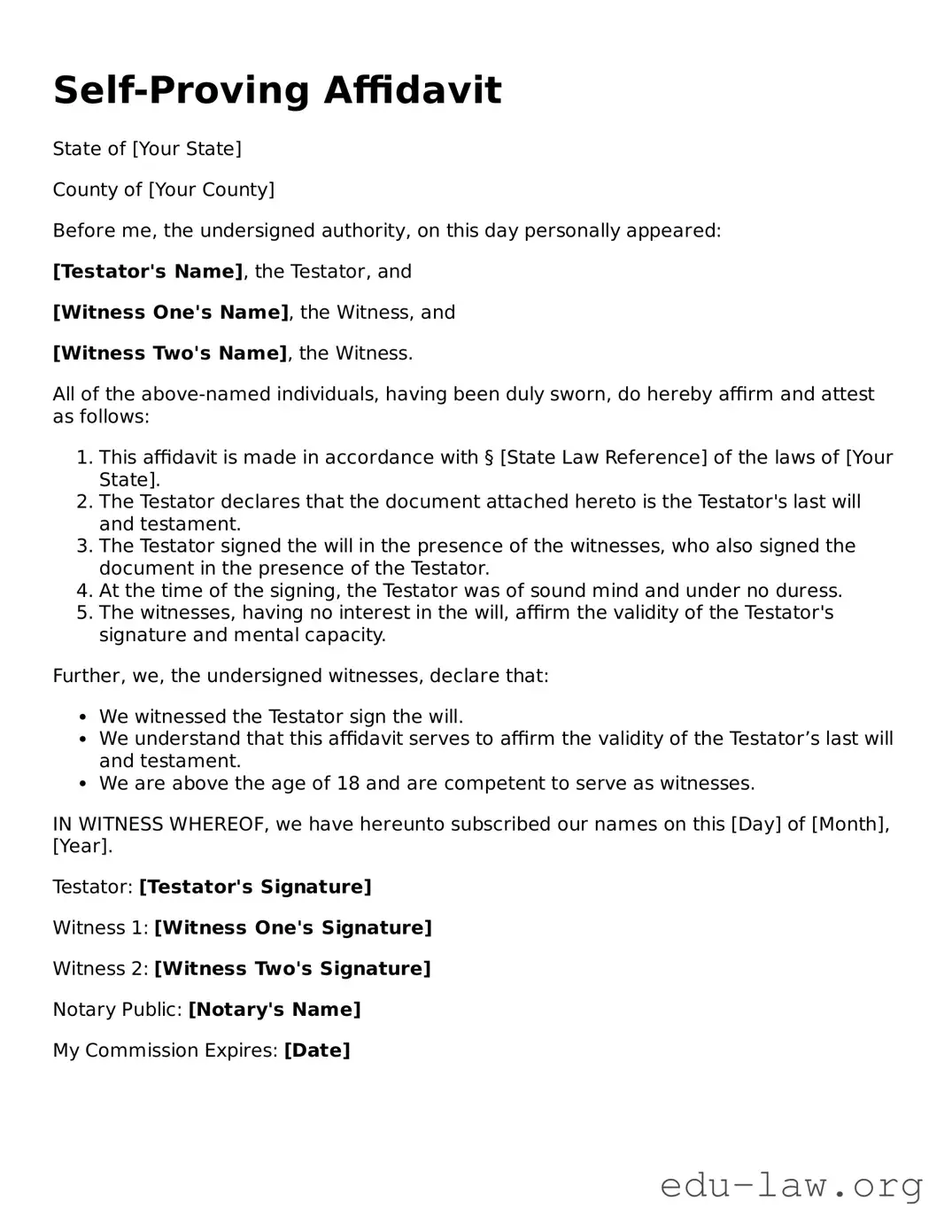What is a Self-Proving Affidavit?
A Self-Proving Affidavit is a legal document that allows a will to be validated without the need for witnesses to testify in court. This affidavit is usually signed by the testator and witnesses in the presence of a notary public. By including this document, the probate process becomes more streamlined and efficient.
What are the benefits of using a Self-Proving Affidavit?
The primary benefit of a Self-Proving Affidavit is that it simplifies the probate process. It eliminates the need for witnesses to appear in court, which can save time and reduce the complexity of proving the will. This can also help avoid potential disputes about the validity of the will, giving family members peace of mind during a difficult time.
Who can create a Self-Proving Affidavit?
Typically, the testator (the person making the will) along with the witnesses must sign the Self-Proving Affidavit. It is crucial that all parties involved sign this document in the presence of a notary public to ensure its validity. Most states have specific laws regarding who can act as a witness or notary.
Where should a Self-Proving Affidavit be stored?
The Self-Proving Affidavit should be stored alongside the will in a safe location. It may be helpful to inform trusted family members or legal representatives about the location of these documents. Many people choose to keep them in a safety deposit box, a fireproof safe, or with a lawyer who specializes in estate planning.
Do all states recognize Self-Proving Affidavits?
Yes, most states in the United States recognize Self-Proving Affidavits, but the specific requirements for these documents vary by state. It’s important to check local laws to ensure that the affidavit complies with state regulations, as the format and necessary signatures can differ.
Can a Self-Proving Affidavit be challenged?
While a Self-Proving Affidavit strengthens the case for a will’s validity, it can still be challenged in court. Factors such as undue influence, lack of capacity, or fraud could lead to disputes. However, the existence of a Self-Proving Affidavit often makes it more challenging for individuals to successfully contest a will.
How do I create a Self-Proving Affidavit?
To create a Self-Proving Affidavit, you should reference state-specific templates or legal forms. It typically requires the inclusion of the testator’s declaration, signatures from the testator and witnesses, and a notary’s acknowledgment. It might be prudent to seek legal assistance to ensure that the document complies with all local regulations.
Can I revoke a Self-Proving Affidavit?
Yes, a Self-Proving Affidavit can be revoked or replaced. If the testator creates a new will, the previous will and its accompanying Self-Proving Affidavit may be revoked. It is important to clearly communicate any changes to ensure that all parties are aware of the current legal documents in effect.
